Interview: Jonathan Wilson, Renaissance Man
As he releases his superlative third album, Rare Birds, Teri Saccone picks the brains of one of the most interesting characters in modern guitar music…
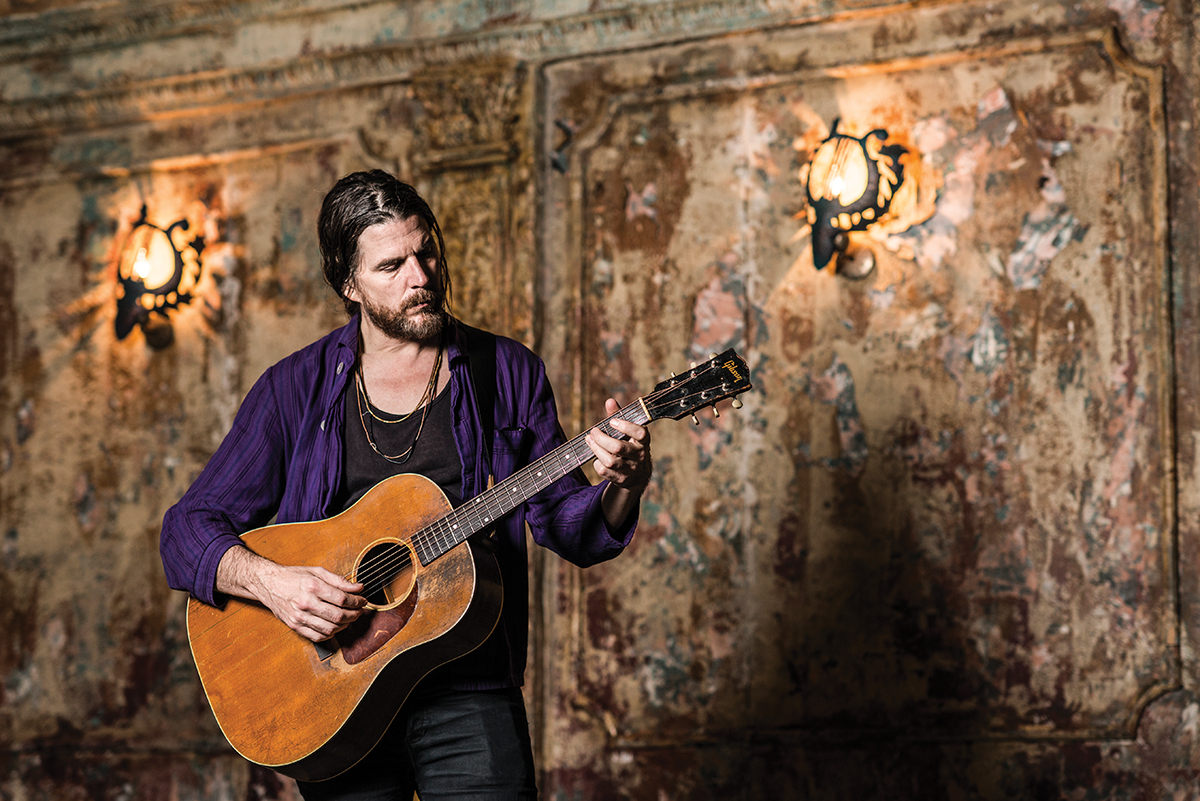
Photography Eleanor Jane
Jonathan Wilson is that rarest of creatures: a creative purist. A guitarist, producer and songwriter of enviable talent, Wilson’s music may be steeped in the dreamlike sounds that filtered out of Laurel Canyon in its early-1970s heyday but his recent work owes as much to Trevor Horn and has the widescreen ambition of Kate Bush or Peter Gabriel.
Don’t let his relaxed demeanour and intoxicating music lull you into a sense that he’s not making the most of every spare minute – Wilson just might be the modern heir to James Brown’s famous title of ‘the hardest working man in showbusiness’. From the impressive surroundings of his Fivestar Studios in Echo Park, he’s sat in the producer’s chair for artists as varied as Father John Misty, Conor Oberst, Roy Harper and Glen Campbell. He’s also in demand as a musician, having performed and collaborated with the likes of Erykah Badu, Wilco, Jackson Browne, Graham Nash and many more.
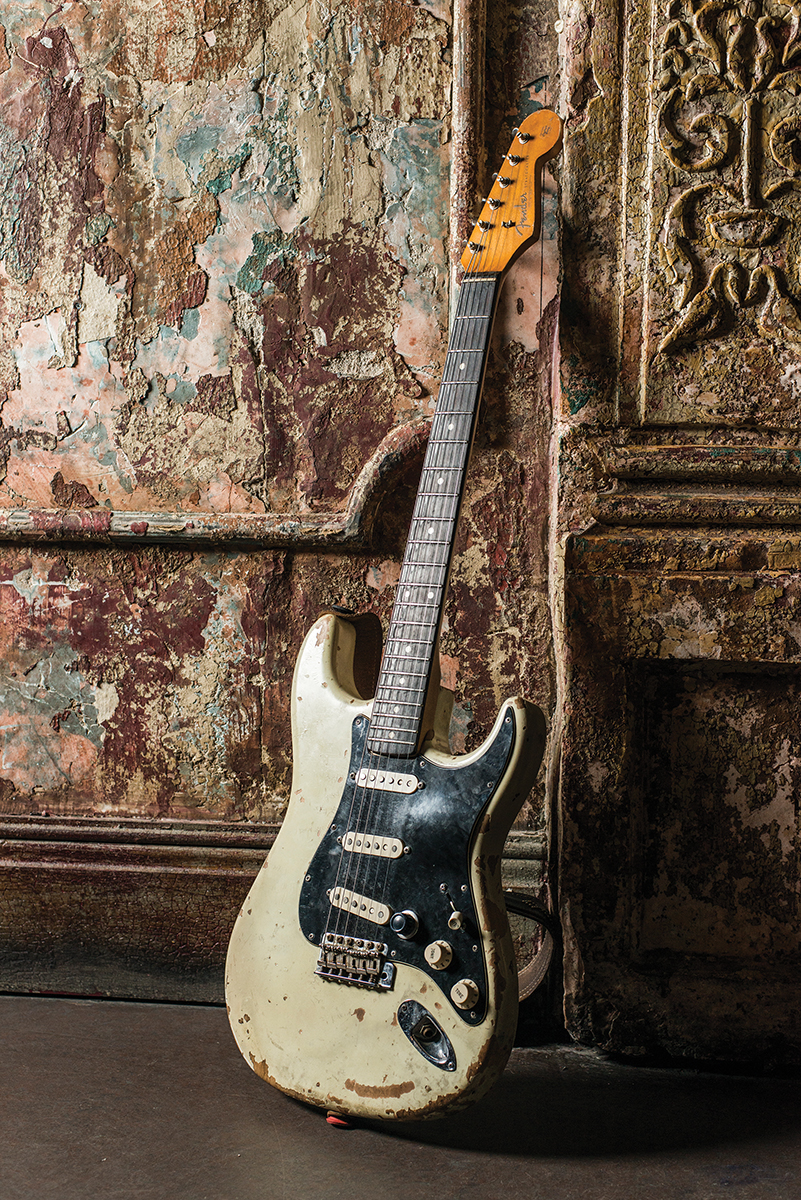
Jonathan: “The Strat is a partscaster I put together with my dad way back in 2004. It was one of the first guitars I put together. The pickups are special, they’re made by Alan Hamel”
It’s a stacked slate that goes someway to explaining why his new album, Rare Birds is his first since 2013’s Fanfare, but that’s not even the full story. For the last few years, Wilson has been the lead guitarist and musical director (although he deflects the latter with typical humility) in the band of Pink Floyd legend, Roger Waters. It’s a gig that’s taken him around the world, and also seen him contribute to Waters’ critically lauded 2017 album, Is This The Life You Really Want?.
But throughout all his other endeavours, the threads of Rare Birds have been percolating and developing, finally coming together in an album that’s already a surefire entry in many 2018 Best Of lists. Expansive and arrestingly ambitious, it clocks in at a sprawling 80 minutes, but there’s artistic progression, too.
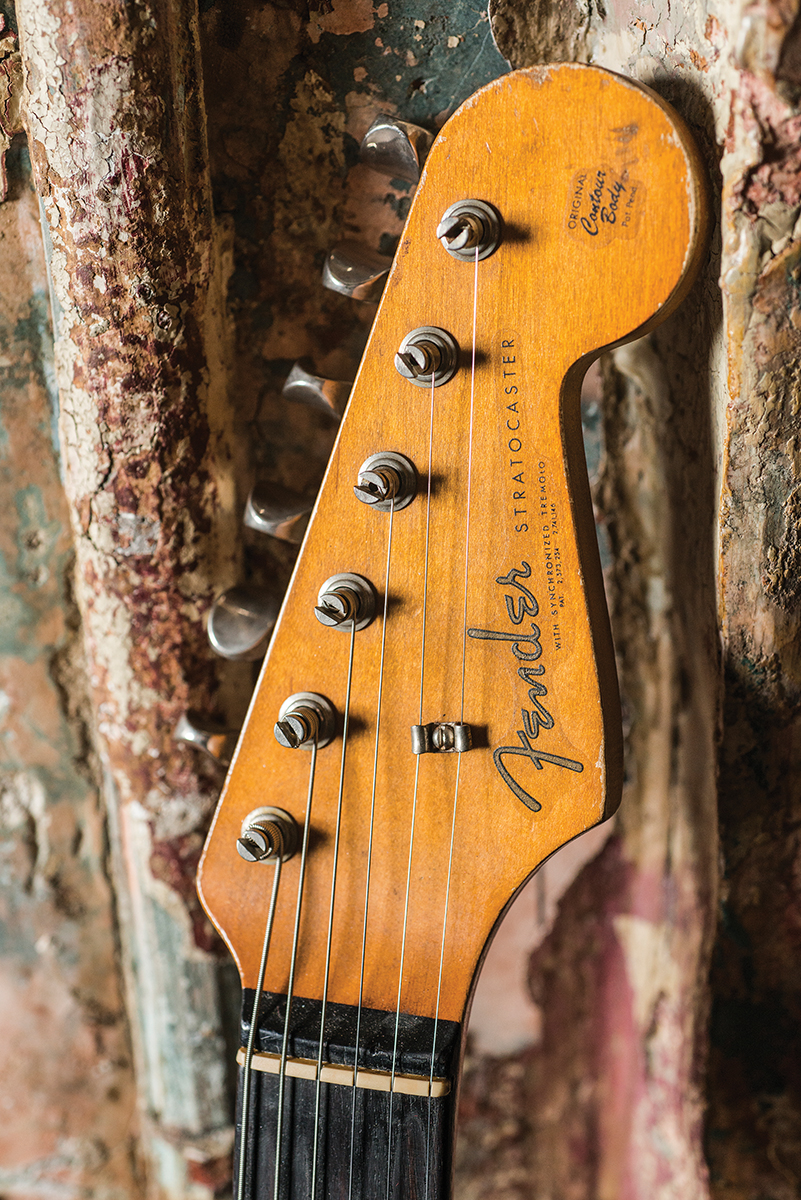
The nucleus of 2011’s Gentle Spirit was guitar-based psychedelic folk, 2013’s superlative Fanfare saw songs structured around a Steinway, but Rare Birds is an edgier proposition than its predecessors. Although imbued with broad 1970s musical references, he’s also injected an 80s feel and even some straight-ahead rock. A theme running through all of his projects is a knack for sounding big, yet intimate – his record label aptly describes it as “maximalist”.
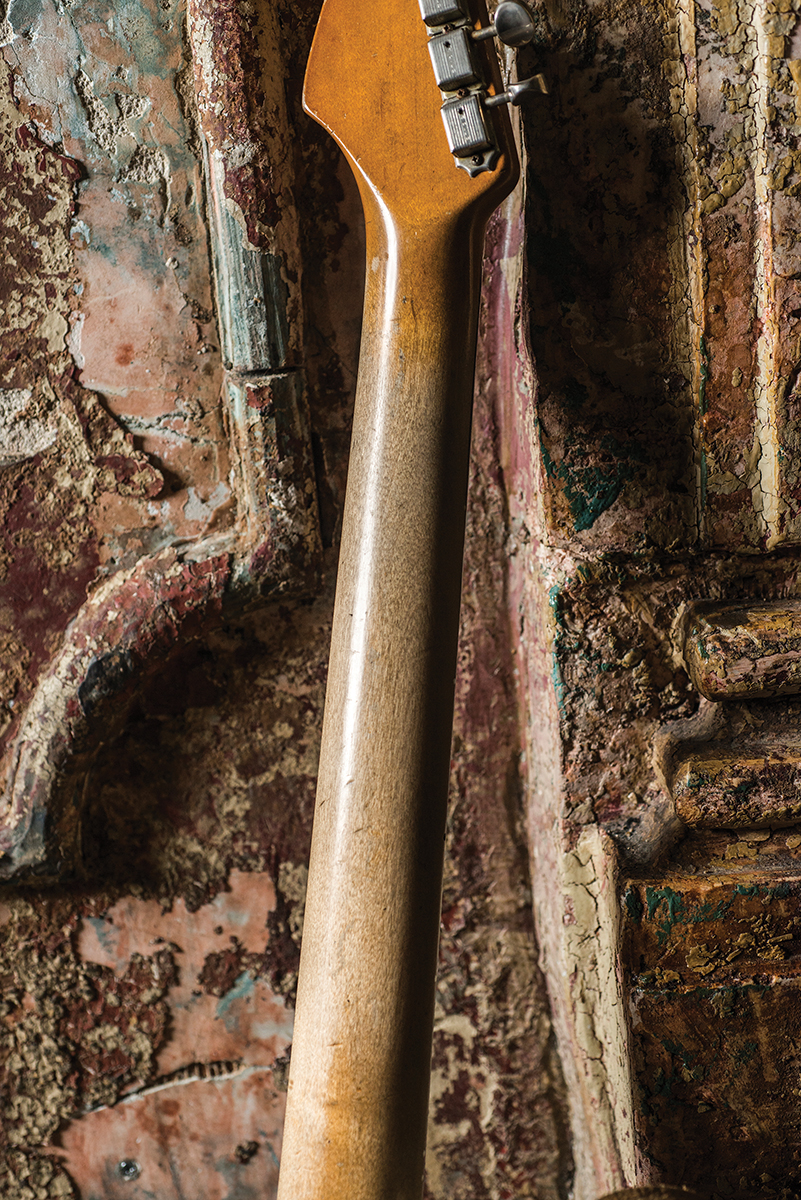
Moving On
We catch up with Wilson during his recent European tour, on a rare afternoon off in Amsterdam. As the amiable North Carolina native traverses the city’s famous canals, we wonder if the presence of synths and electronic drums on Rare Birds represents a concerted effort to break with his Laurel Canyon revivalist reputation, but he insists it was an organic change.
“The songs developed naturally and I didn’t set up specific tonal ideas,” Wilson insists. “I just knew I wanted something a bit more like myself. I was the Canyon folky dude for a while, pursuing sublime 60s/70s acid rock fuzz tones. I don’t hear many other people achieving that sonic touchstone. I loved it but I didn’t want to create a pastiche either. The synths and drum machines were precisely what I used starting out as a youngster. So I’m back to where I began with those.”
Listening to Rare Birds, the influence of his time with Roger Waters can be heard at several moments – we wonder how much working with the Floyd icon informed the album’s writing.
“Insofar as a lot of my songs were done at the same time,” he explains. “He’d be in my studio all day and then afterward I’d return to my songs, and the same amps were there, my guitars were there in tune. I have this little handmade ghetto board that sits under my mixing desk. He’d say it was, ‘Weird, home-made hippie shit’. But a lot of that, and my pedals, ended up on his record and mine, too.”
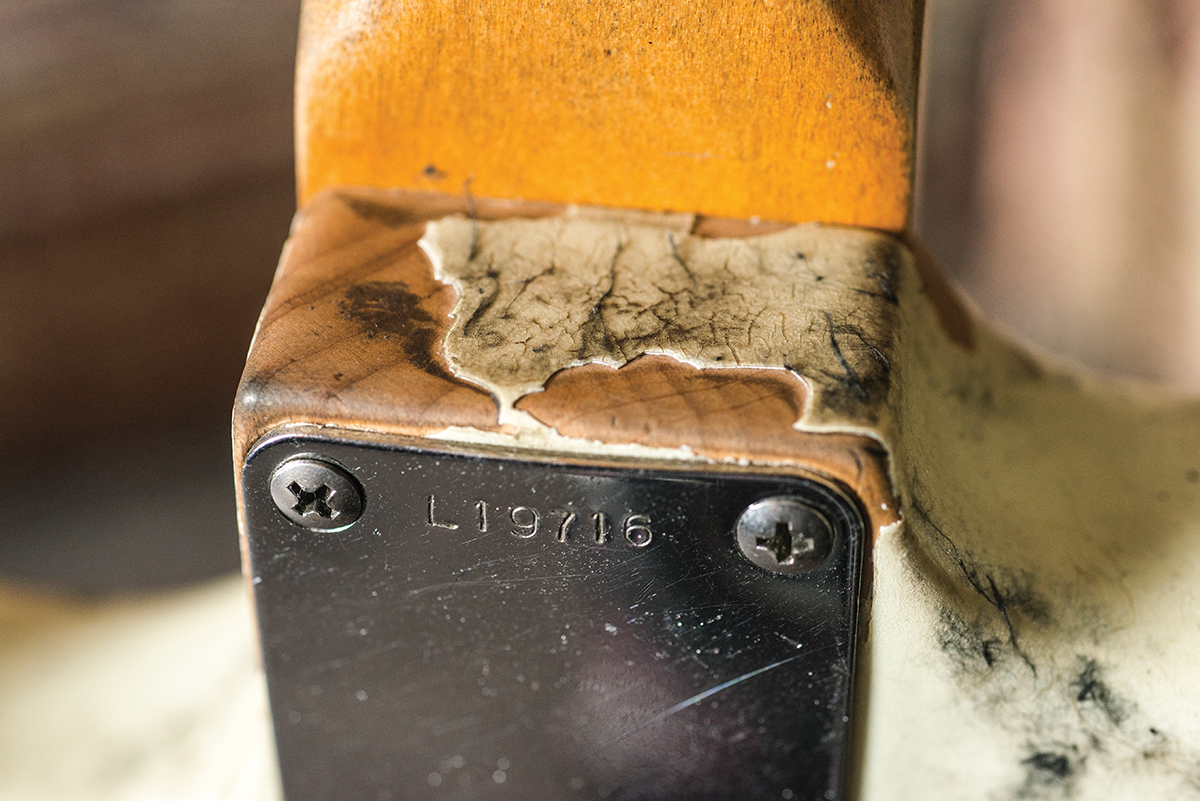
Top Gear
Wilson’s lifelong obsession with recording and guitar gear began when he was a teenager, when he bought himself a portastudio – a humble Tascam. Since then, however, things have ballooned substantially.
“It would fill a couple of tractor trailers at least,” he wryly admits of his gear collection. “I’m one of those psychotic people who buys it all, fixes it all, carts it all around the world and sets it up to produce people who come to me.”
Indeed, Fivestar Studios has become a Mecca of vintage gear, but he’s not always been about buying the gear – he was a notable luthier at one point, but now admits that crafting instruments was a vehicle to fund his gear addiction. “When I made guitars it enabled me to buy gear,” he adds. “I’m so enthralled with equipment. It’s my life.”
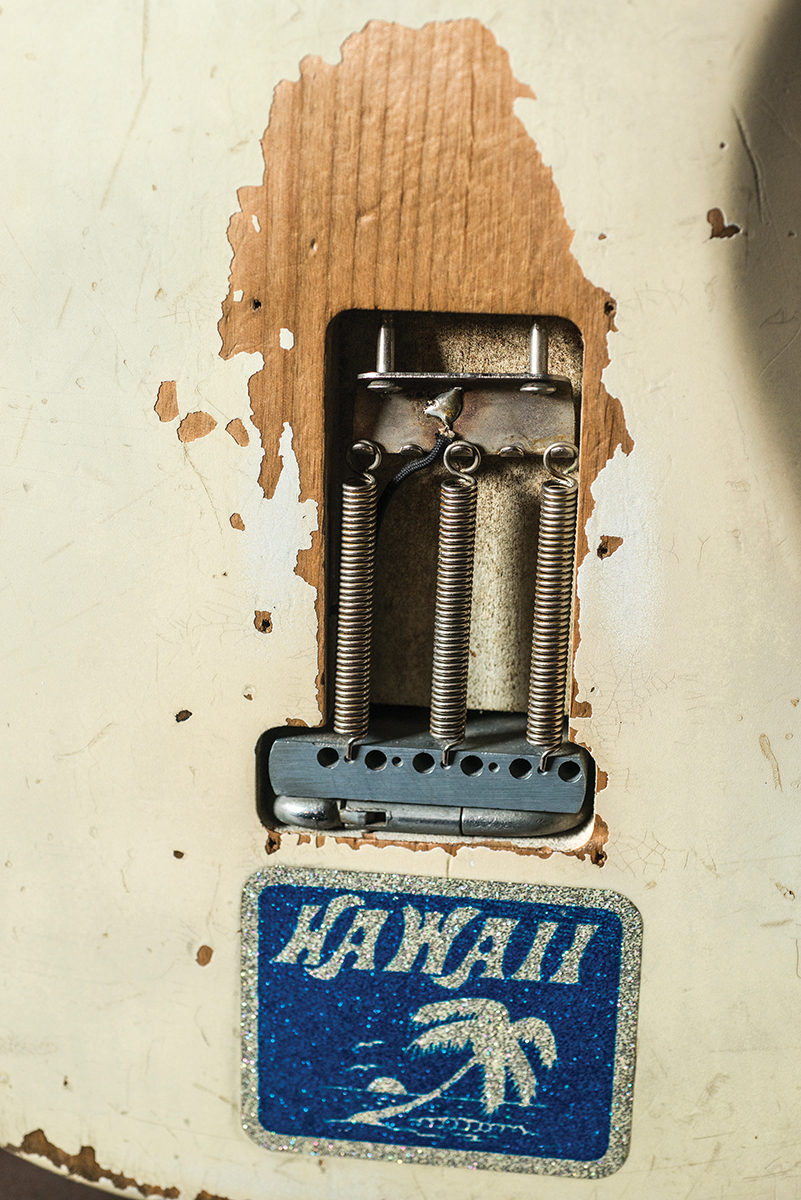
As befits any rabid collector, Wilson has countless effects pedals as his disposal, and it’s something that’s recently seen him move into putting his name on boxes made by boutique maker Jext Telez, creating Jonathan Wilson’s Canyon Climber – a faithful recreation of his Shin-ei Companion fuzz, with added boost.
“I put my name on these because they are not vanilla-sounding,” he explains. “These are nasty, broken-sounding, they are made by people who heard my solo stuff and my guitars on the Father John Misty stuff, so they tried to approximate my studio technique to get that nasty sounding fuzz in a pedal. They cascade on top of each other and sound great.”
When it comes to guitars, Wilson’s collection is large and diverse, but he primarily leans on the classic designs, albeit with a typically unconventional slant. “I own about 75 guitars… but there’s a lot of extraneous stuff,” he notes.
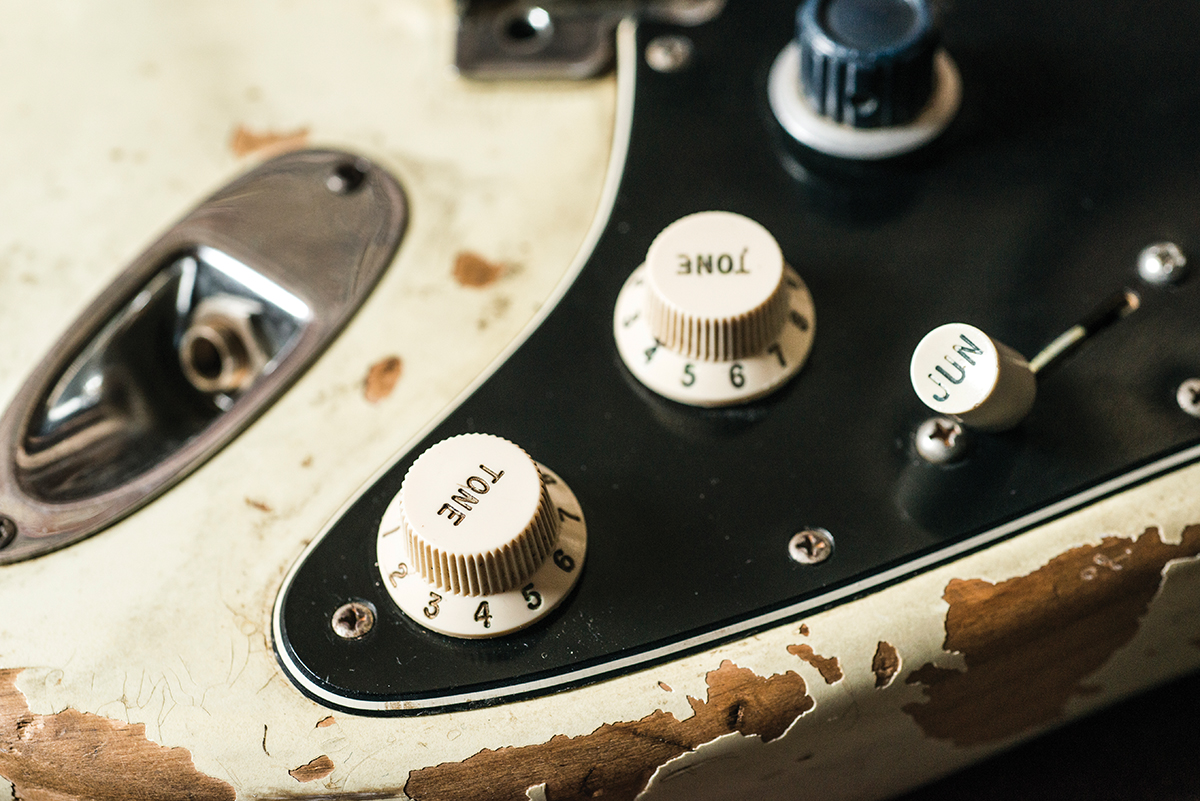
“I’m mostly a Strat player. I have one that I put together with my dad that I still use, and I have one customised by Alan Hamel. It’s an ’84 standard American Strat. It’s super-ugly, a Ferrari red, but sounds great. I also have 335 replica from Canada that does these ’59 Les Paul-style tones. I also have a Strat crafted in Indonesia, which is coated with gold leaf – I converted it to a Coodercaster-type thing. That’s a $100 guitar we made into something cool.
“Most of the action for me is in the amps. I have a ’68 Marshall 50-watt Plexi, a vintage PA cabinet, a PA column from the 60s… Plus four 1963 Bassmans. On the Waters tour, I loaned one to Roger, which is kinda cool, plus I use a shit-tonne of amazing amps, including a Hi-Tone DG-50. For my own shows, it’s the Bassman and Marshall.”
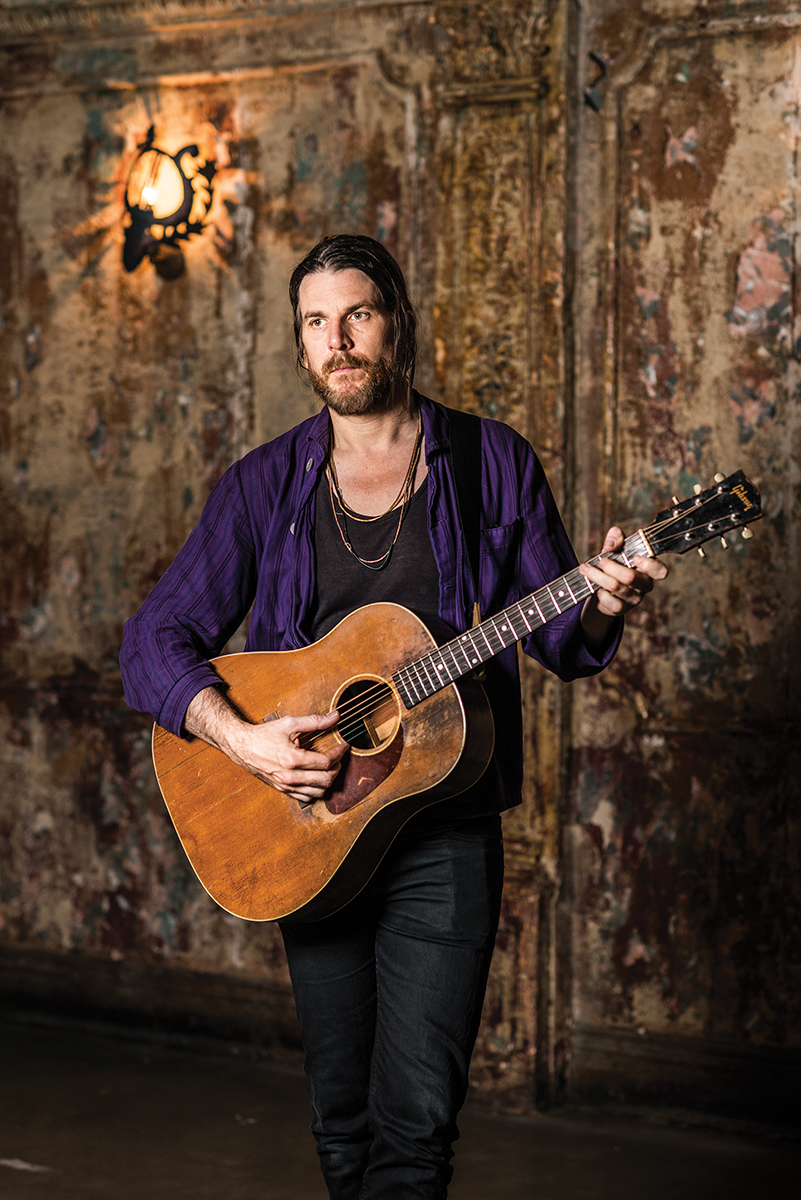
Mu-Tron Legacy
In addition to his love of fuzz, Wilson’s guitar playing has become known for his liberal use of a Mu-Tron envelope filter similar to the one made famous by the sublime Jerry Garcia.
“I first got my Mu-Tron Micro V just to try out and I kept it,” he recalls. “I still use that for the vocal sound it gives me, I like that because it sharpens the melodic connections. Same thing when I use the talkbox. The Mu-Tron is an extension of that.”
Despite the Garcia associations, his love of the Mu-Tron didn’t come from Jerry, though he does describe himself as a bit of an acolyte. “Yeah for sure,” he explains. “But not at the time I got the Mu-Tron, which was a long time ago. Since then I really discovered him and the Dead, and have done stuff with GD members. But Jerry was a luminary to me.”
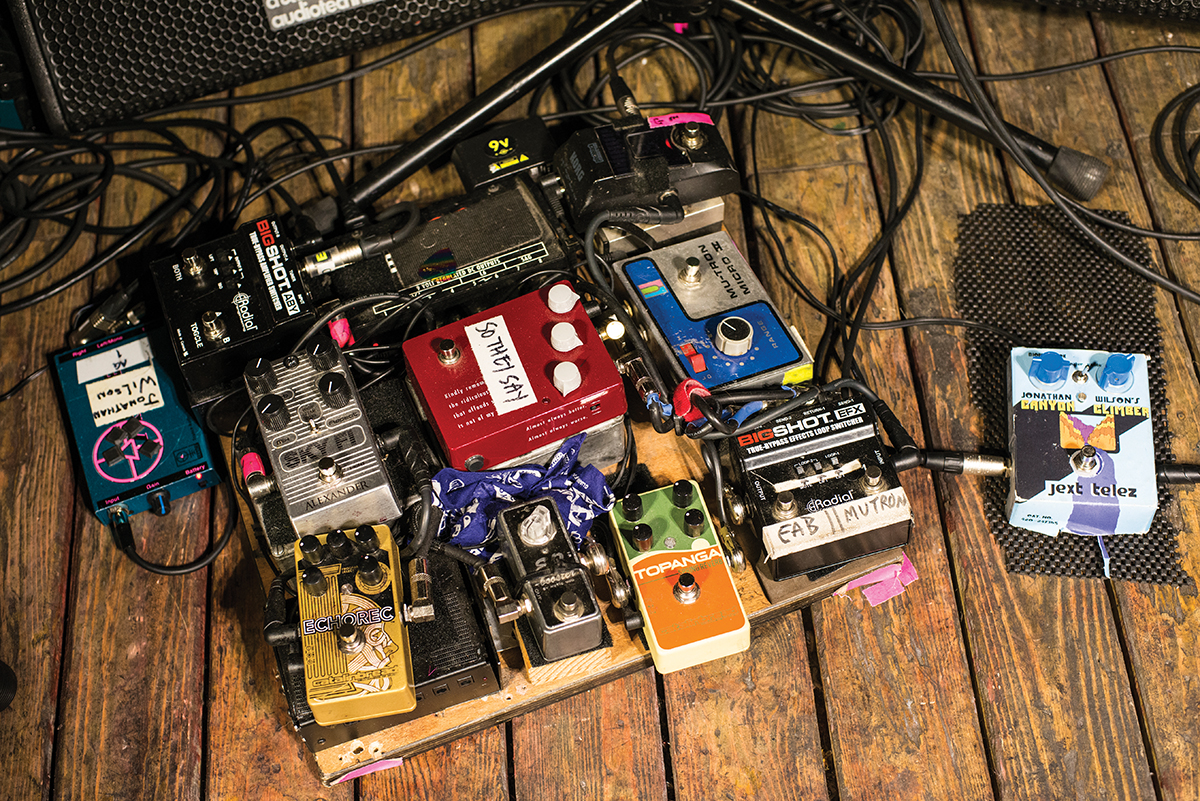
Jonathan’s carefully chosen pedalboard, which features various boutique boxes, plus his signature model Jext Telez Jonathan Wilson’s Canyon Climber fuzz
At Fivestar there lives an historic console: a rare Cadac board that once lived in the legendary Wessex Studios in London, and saw the likes of Queen, Sex Pistols, King Crimson and The Clash make use of it for their recording needs.
“It was up for auction and someone told me about it,” Wilson recalls. “I bought it for $50,000. The photos were really blurred online, so it was a leap of faith to buy it, as I couldn’t be sure it would show up. It’s so exciting to have and use.”
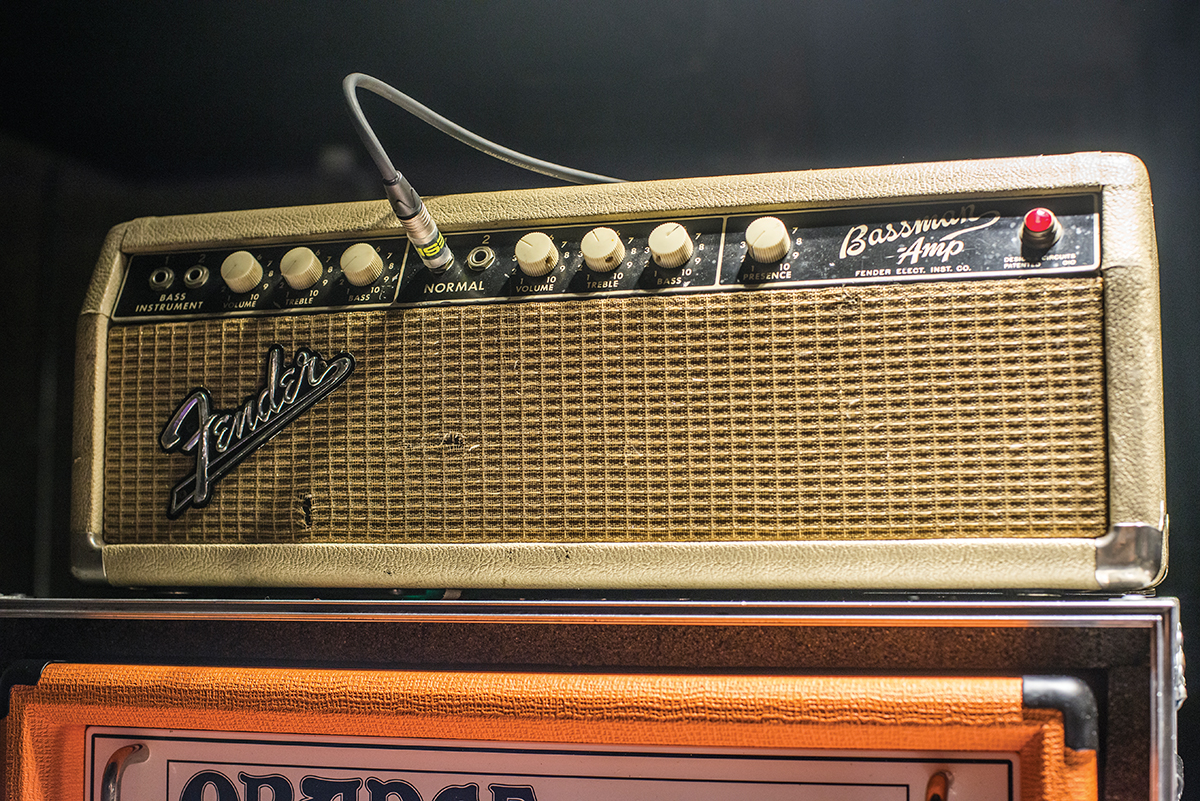
Jonathan’s live amps comprise a ’63 Fender Bassman and a ’68 Marshall Plexi
Extended Migration
With such a non-stop schedule of production and touring, he admits that the birth of Rare Birds hasn’t been the easiest, and it’s taken him a long time to get it to its current state.
“It was arduous, a long haul,” Jonathan adds. “I had started some of this in 2013, I scheduled myself in a studio in Joshua Tree to work at one point. I did about nine songs there. I pulled myself away to lay down guitar tracks. I kept getting hijacked to mix (Father John Misty’s universally acclaimed 2017 album) Pure Comedy, or go on tour with Roger. But those projects gave me time to think about the tracks.”
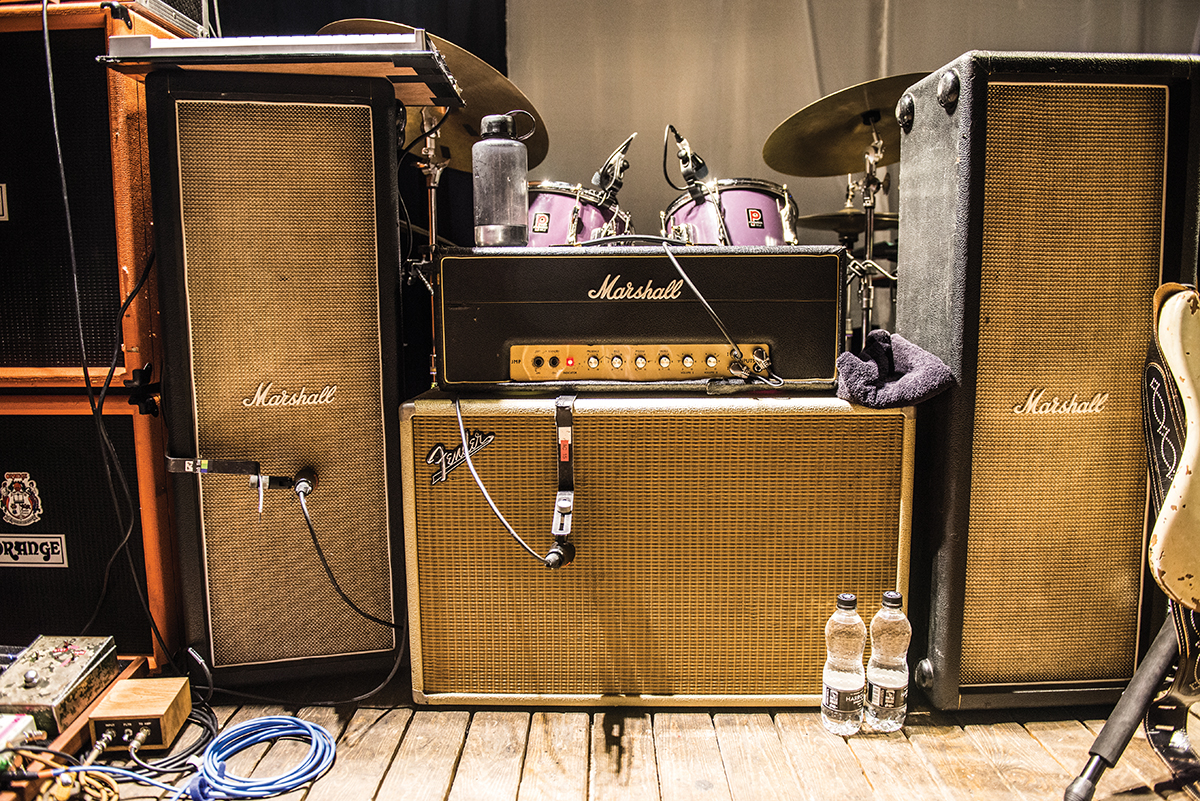
Speaking of the Pink Floyd mastermind, from a distance, the pairing of the laidback guitarist and the eternally outspoken Englishman may seem an unlikely one. Yet Waters has embraced Wilson musically and personally – he fondly calls him the band’s “resident hippie”. Wilson brings not only his incredibly deft guitar skills and sumptuous tones, but also superlative background vocals – a combination that recalls another Strat-toting guitar player that Waters has stood next to on stage…
Given that mix, it’s perhaps not surprising that he’s been given the ‘musical director’ title, even if it is one that he’s clearly uncomfortable with. “It’s a de facto vibe, really,” he insists. “It grew out of playing on his album. We made about 60 to 70 per cent of his album at my studio. So the sounds we developed as a band became a significant part of his live show. But I certainly can’t take so much credit. I had gone to his Desert Trip show. That band sounded great and I didn’t think he’d want to change it. But he did, which was risky and the band feels more like a band rather than a random collection of musicians.”
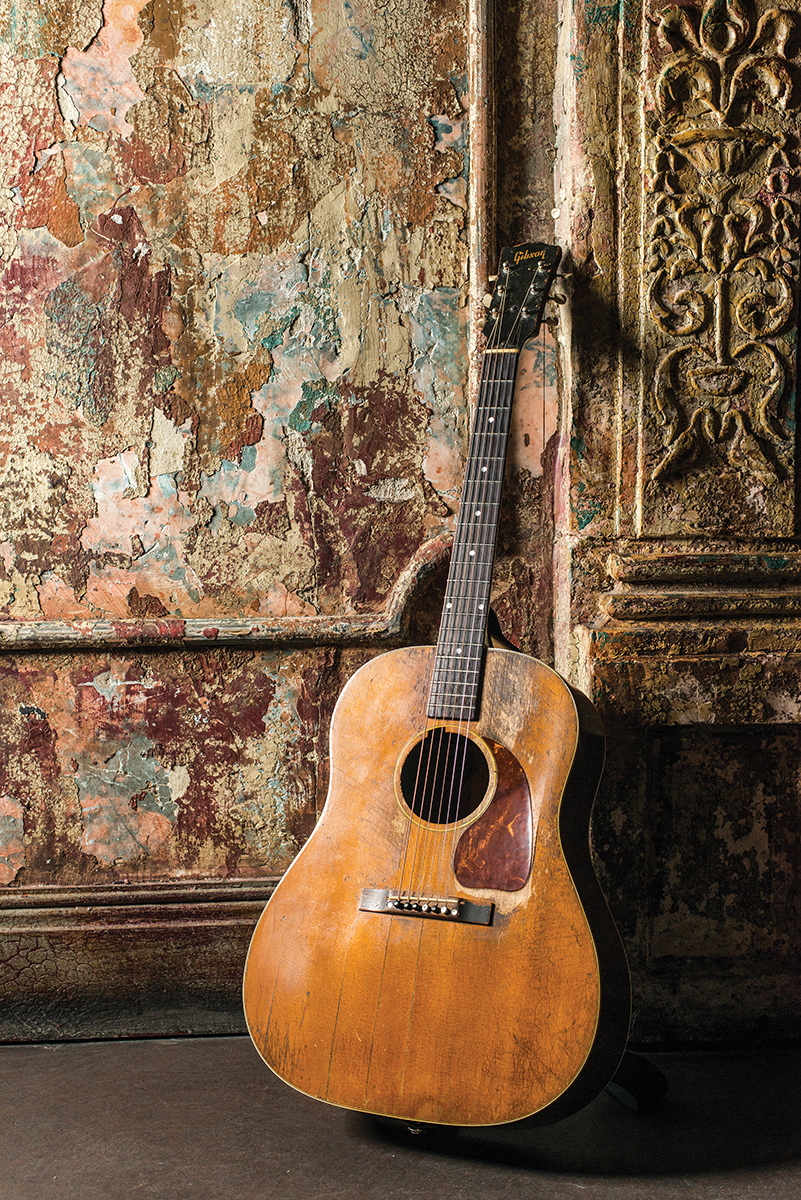
High Waters Mark
Despite the stadium-sized audiences that he plays to on the Waters tour, Wilson assures us that there are no inherent pressures… with one notable exception. “Stress only happens if I’m on stage and play a wrong note,” he chuckles. “And then I’ll think the whole stadium hears it, which is probably untrue.”
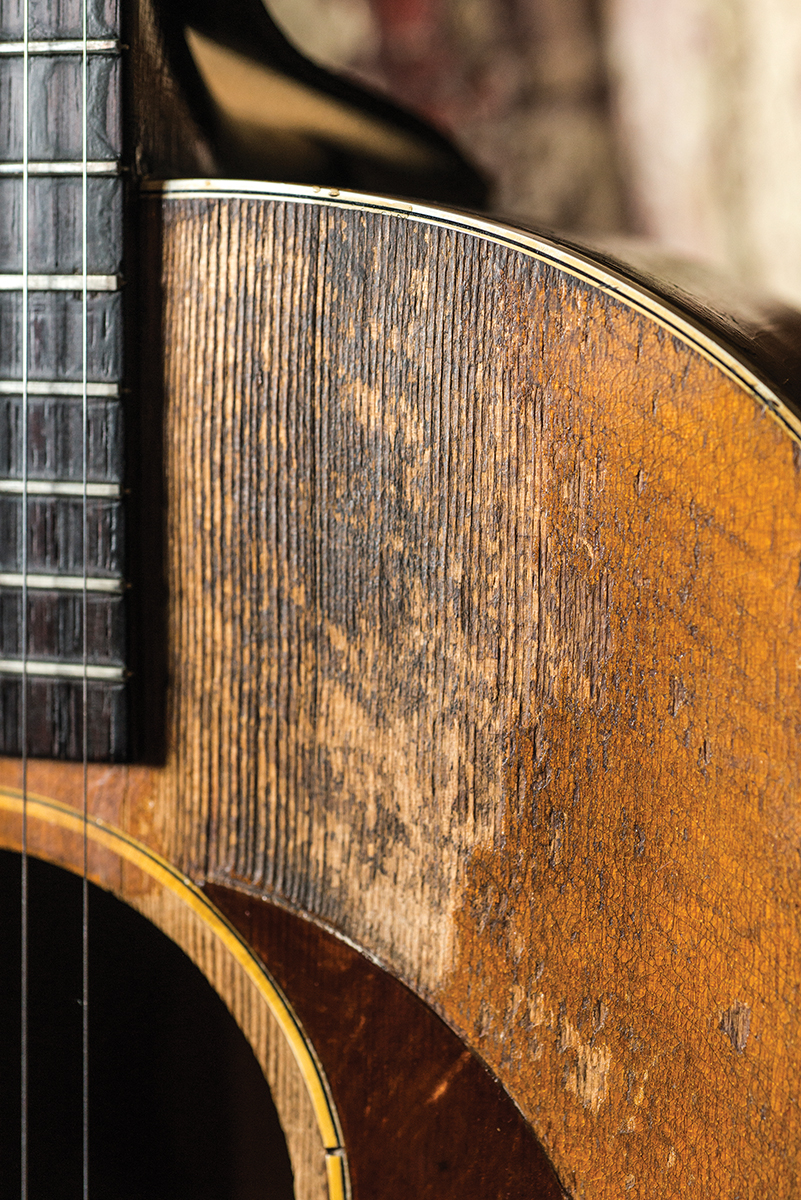
Waters himself also has a bit of a reputation as an abrasive character, but Wilson is keen to dispel that notion. “He’s such a personable dude and the whole band have become pals with him and each other,” he insists. “It’s such a great gig, too, because it’s all about rock ’n’ roll spirit where it’s more about the intent rather than perfect execution.”
That intent carries over into the solos, which Jonathan shares with Waters’ other touring guitarist Dave Kilminster, where old-school musicality is the prime concern ahead of technical fireworks.
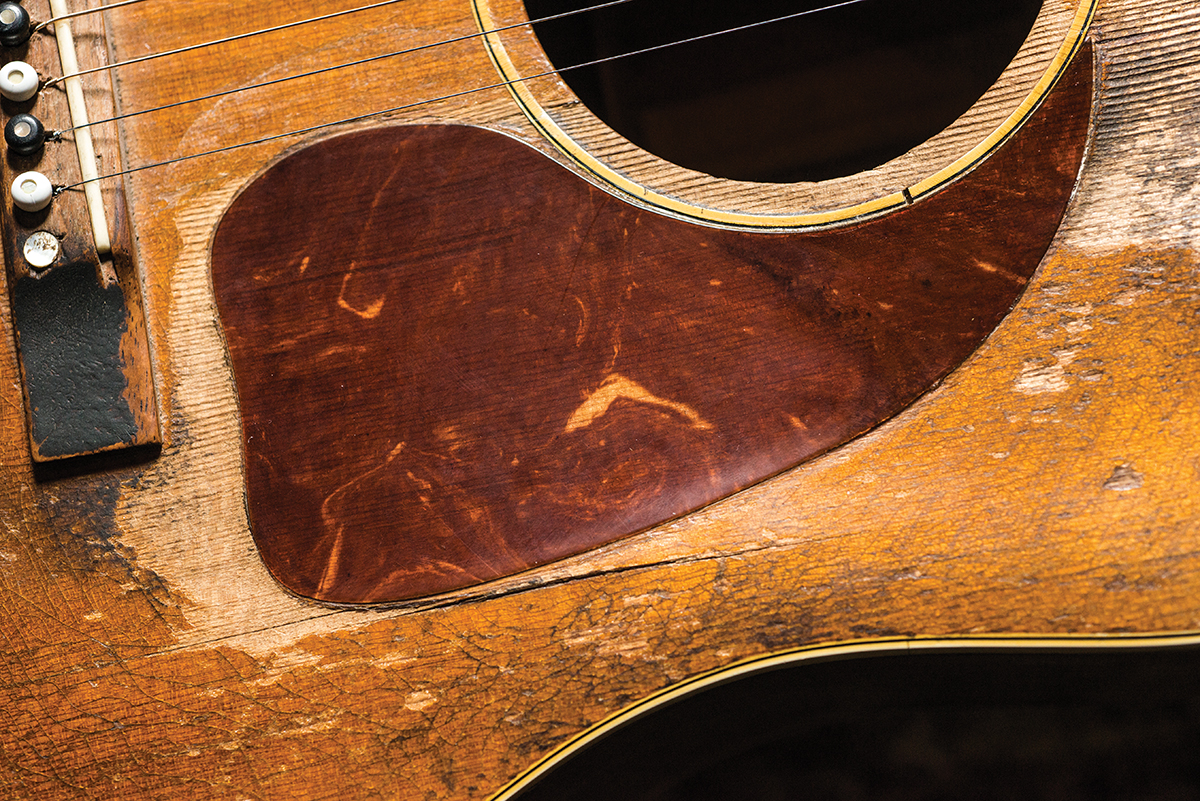
Jonathan on his main acoustic: “The Gibson is a first year J-50 – 1947. I got it in Hollywood about 10 years ago. It was cheap because it was beat up, but I knew it must sound good if it’s beat up!”
“You must be able to sing the solo, or there’s an issue with the melodic component,” Wilson explains. “I know so many guitarists that are great players and can mimic great melodies, but there is a disconnect between their hands and creating melodies. It’s a gift I think, and not everyone is connected to that.”
As with any artist who spends a long time away from the limelight, Wilson accepts that his sojourn into other pursuits has meant he’s faded from view somewhat since the critically and commercially successful Fanfare – but it’s clearly not the easiest thing to rebuild your following.
“It’s a challenge to be on the road in that I’ve been off the map since Fanfare so we’re in small venues again,” he sighs. “I’m not yet at a point where I can truly enjoy the process. But it’s infinitely exciting to get back on stage with my band, expanding the new songs. To make the show a truly sensory experience is my ideal. I’m not going for something as huge as what Roger did with The Wall, but that’s the ultimate.”
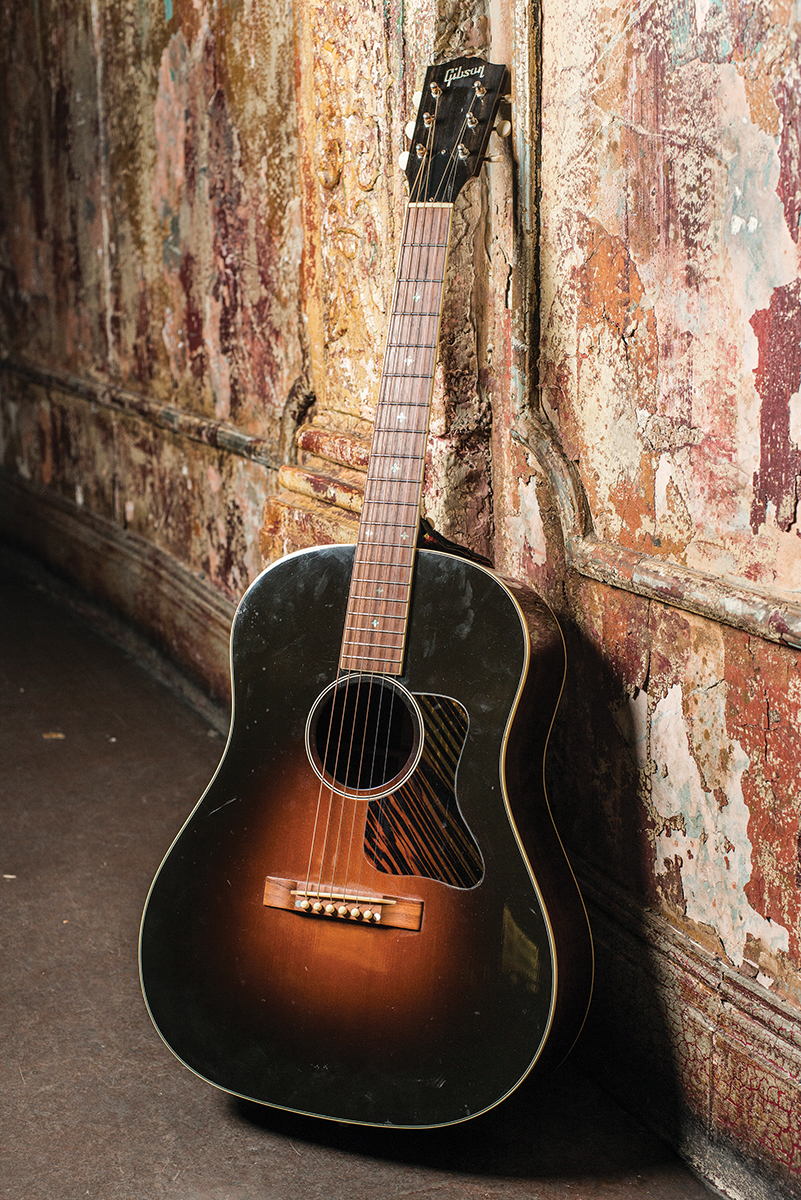
Jonathan’s Gibson Jackson Browne – like all his acoustics, it uses the Trance Audio Amulet stereo pickup system
He has to make the most of these opportunities, however, as the call of his other life is never far away. “I’ll keep doing my solo tour until I meet Roger in Spain, then I’ll do another 45 shows with him then jump back into my solo tour,” he observes. It’s another packed schedule, then, and we have to wonder if he doesn’t wish he had time to stop and appreciate what he’s achieved – but Wilson is having none of it, replying contentedly, “My next day off is 16 December…”
Jonathan Wilson’s Rare Birds is available now on Bella Union.
